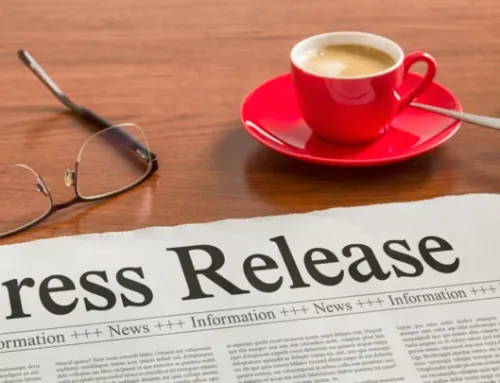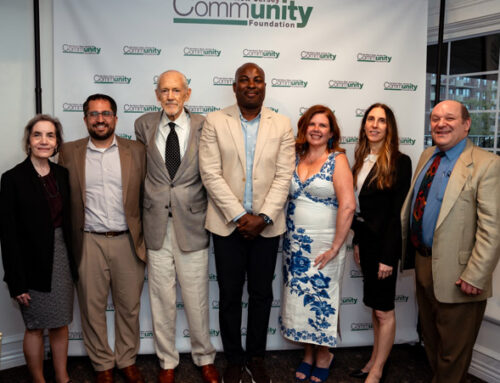Jacob Elordi on Returning to Australia for Amazon Limited Series ‘The Narrow Road to the D
April 20, 2025
The television adaptation of Richard Flanagan‘s prize-winning book brings with it a number of firsts. It is acclaimed Australian filmmaker Justin Kurzel‘s first work for television and also the first time Euphoria and Saltburn star Jacob Elordi has returned home to lead a major Australian production.
Produced by Sony Pictures Television’s Curio Pictures and Amazon MGM Studios Australia, Narrow Road debuted on Amazon Prime Video on April 18, but the limited series, speaking to its feature-like qualities, premiered its first two episodes at the Berlin Film Festival earlier this year. In his review, The Hollywood Reporter‘s film critic David Rooney was gushing in his praise of those first two episodes, describing Narrow Road as “big, bold and strikingly cinematic.” “Based on the first 90 minutes, The Narrow Road to the Deep North has potential to stand alongside films like Peter Weir’s Gallipoli and Bruce Beresford’s Breaker Morant as a nuanced and compassionate study of Australians at war,” Rooney wrote.
As well as winning the prestigious Booker Prize in 2014, Flanagan’s book has been feted around the world and become a work of national significance in Australia, so, as Kurzel told THR, there was an “inherent” pressure to get the adaptation right. Kurzel, who has directed some of the most critically acclaimed Australian films released this century, including Snowtown (2011), True History of the Kelly Gang (2018) and Nitram (2021) and who is also coming off another critical success with 2024’s The Order, has been working on a Narrow Road adaptation since 2019 when the project was set up at Fremantle, before it moved to Curio and Amazon.
Set during and after WWII, the limited series follows Australian surgeon Dorrigo Evans, who endures horrific conditions as a prisoner of war forced to build the Burma Railway under brutal Japanese command. Haunted by a lost love as well as wartime atrocities, the story shifts between Dorrigo’s traumatic past and postwar life, where he grapples with guilt, memory and the weight of heroism.
The five-part series was written and co-created by Kurzel’s longtime collaborator Shaun Grant and features a haunting score by Jed Kurzel. As well as Elordi, Narrow Road stars a number of up-and-coming Australian actors including Odessa Young, Olivia DeJonge, Thomas Weatherall and Charles An. The series also stars veteran actors Ciarán Hinds, Heather Mitchell, Essie Davis and Simon Baker and Japanese actors Sho Kasamatsu, Taki Abe and Akira Fujii.
Ahead of the Prime Video debut of Narrow Road, THR spoke with Kurzel and Elordi about the making of the limited series, the pressure they felt in adapting Flanagan’s work, and how the series speaks to modern Australia.
Justin, let’s start with the book itself. The Narrow Road to the Deep North is quite epic and deeply introspective at the same time. How did you as a director balance the horrors faced by POWs and the camps and also Dorrigo’s internal struggle? And was it easier to adapt the book via television rather than a film?
JUSTIN KURZEL Definitely the opportunity of doing it on on TV was just that length that it allowed, you know, over five episodes it allows enough time and space for the sort of tapestry of the older Dorrigo looking back in memory, at the same time being present in this relationship with Ella, and understanding what that relationship means to him, and then obviously the prisoner of war camp and then the summer of love.
Richard always said to me the most important thing to him — even though he gave his permission for me to really own it in some way as a piece of cinema — was the tapestry of different time changes. Being deliberately forced into those different moments of memory were really important to him. That was the only feeling I had going into it.
I always thought that the book was so unique in that it was looking at war and the horrors of war and the experience that Dorrigo had through the prism of a love story. And that love story was quite unique in that it only sort of happened over a short six week period, this “summer of love,” and then grew and sustained itself for Dorrigo through the war, and especially through [his time in the] camp, and that relationship grew almost as a ghost romance. Amy evolved and grew next to [Dorrigo’s] trauma through the awful things that he saw, endured, experienced and [trying to] keep these men alive, there was always the memory of her and what she was to those experiences. I found that terribly moving. It could have been a relationship if it went one week, two weeks longer — it may have finished. He could have come back from the war and started the relationship with Amy, and it would have been something different. But for [Dorrigo] it was what she was to him, through that awful period and time, and she then existed as that figure all the way until the end. I’ve never really seen that in a story about the trauma of war and the legacy of those experiences told through the prism of a relationship like the one between Dorrigo and Amy.

Amazon Prime Video/Curio Pictures/Sony Pictures Television
The structure of the piece is really interesting because you flip between lots of different timelines. It’s initially confusing but then you get into the flow of the story and it all makes sense. Were you worried about keeping the audience with you?
KURZEL There’s something about the book that does that as well, like you start reading it and at first you’re jumping around in a particular way and then it all just melds really beautifully and seamlessly. I noticed that as I was editing the first episode. OK, here we go, our audience is going to go with these jumps and you just get into a story and then you’re taking them out. What I found was that there was just some DNA in the material that really played like memory. You really felt as though each of these pieces were terribly interconnected and that there was something very, strong and interesting in how they started to overlap rather than cut. I got quite excited by that. I was very cautious about it, but trusted that there was something that worked so beautifully in the book that would translate as a piece of cinema in terms of how those scenes all buttered up against each other, ultimately kind of overlap and were able to live with each other.
Your work is known for dealing with things like trauma and masculinity, and there’s a lot of trauma and a lot of masculinity in Narrow Road, are those issues something that you wanted to explore further with characters like Dorrigo?
KURZEL I found it quite different from stuff that I’ve done before. I mean, essentially at the heart of it is this love story between Dorrigo and Amy. I think there is trauma in the prisoner of war camp, obviously, that’s experienced and that’s recalled in memory and that does sort of shift and change Dorrigo. But I always saw it through the prism of love, not only with Amy, but also with this sort of beautiful relationship he has with the men, not only to keep them alive, but for all of them to be gentle to each other and show care and really look after each other. I saw it more through that. I think sometimes my work can be classed as masculine and there being violence to it, but a lot a lot of my work too is about family, and it is about people desperately trying to be with one another and communicate and support each other, and this, in some sense, this was a departure from my previous work. But, at the same time there are certain areas that I’ve always been interested in.
This question is particularly about episode four, so the scenes involving the POWs in the camp and the extreme torture they went through, it’s quite harrowing material. How do you film something like that as a director?
KURZEL It’s immersive and it’s confronting, and you know that day is coming up. It was a very important part of the book, what these men witnessed, and also what these men did to each other. I wanted it to feel as real and immersive as possible. We did extremely long takes. [Thomas Weatherell] who played Frank was unbelievably courageous and it was incredibly exhausting and confronting for him. It’s a hard thing, part of it is also it’s choreographed to a T, those scenes, there’s an artifice to it all that is about hitting marks and hitting particular points and there are emotional beats that you want to discuss and talk about. But at the same time, I also wanted it to sort of feel continuous, so they were five, 10-minute takes that we did with two cameras that were continuously roving. Number one is so that we don’t have to do it 20 times — there’s only so many times that you can do [those kinds of scenes]. But also, there is something about the continuous takes that allow a reality for the other boys to experience it and be in it and no matter how much they’re seeing their actor friend between cut and take, taking directions from me, it still feels incredibly visceral and real.
So, it’s a balance, but I’ve always found with those sorts of scenes that I’ve done in the past that are long takes and that have a sense of trauma about them like that, is just how loving the set is and just how supportive everyone is. They’re very special moments that you’re filming, you know that they are in the script for a reason. It’s a lot of love, a lot of hugs, a lot of cups of tea, a lot of talking, “Are you OK?” And just incredible courage from all of them, not only Tom, but these extraordinary Japanese actors that we had and also the boys who all lost a ridiculous amount of weight, who were all going through their own sort of physical transformation, which was affecting their emotional moods as well in terms of being very heightened, on set.
They’re hard scenes to shoot, but they’re important scenes, everyone takes them very seriously, and everyone really looks after each other.

Amazon Prime Video
Jacob, you play Dorrigo, he’s a war hero, but he’s also a deeply flawed man. How did you find — this is gonna sound a little bit cheesy — but how did you find the humanity in his contradictions?
JACOB ELORDI I think that the question kind of answers itself. The most humanity you’ll find in people is probably in their contradictions. That’s what makes people human — the light and the dark — [Dorrigo] wouldn’t be a real person if he was. If he was just this great heroic man and he was saving all these people, then he would be flawed because there’s something quite indulgent about that as well. I think — now this sounds cheesy — but the duality of Dorrigo is what makes him shockingly human. It’s the most honest that you can be.
Were there particular choices you made in terms of how to approach the Dorrigo character?
ELORDI I think I probably came in with a lot of choices! [Laughs] And Justin said to leave the choices at the door, because he created theater in cinema. Every moment was alive. The takes were five or 10 minutes long, so when you came in, if you had an idea, and that idea would be gone after 30 seconds and you’d still be watching [the character of Frank] get beat, and then the moment is so alive on the set that Justin creates that things just appear and come to you in the moment, because the camps themselves were built round, like a stage. We were in the jungle and there was something happening on every corner of the set, so it was really just — again it sounds cheesy but it was — it was more about responding in the moment, I suppose.
I felt like the love scenes were just as brutal as the war scenes, but for different reasons, so you had trauma squared. Did you find that challenging to play as well?
ELORDI You know the love scenes actually ended up becoming quite peaceful, we called it the “summer of love,” and there were moments with Odessa, who plays Amy, we had this pub and it was just us in this pub just outside Canberra, and it was beautiful. You check in every day and then you kind of live in this time period in the pub. As Justin said before, it wasn’t completely harrowing and like trauma because it was a lot of ‘hey, I love you,’ ‘do you want a cup of tea?’ It was very collaborative and everyone was working toward the same point. It was honestly just enjoyable.
In playing Dorrigo, I guess in comparison to other characters you’ve played, were there any particular elements of his character that are still living with you?
ELORDI No, I mean there’s parts of yourself that you can’t really get away from when you play something, and the thing that struck me the most when Justin gave me the book was the similarities that we had, which may just be from being Australian men, and the upbringing and things like that, but no, nothing so alarming. I’m not great at surgery or anything like that, no. [Laughs]
This question is for both of you. Narrow Road is a really important book for Australians and it’s been incredibly successful globally, did you both feel the added pressure to get this adaptation right?
KURZEL Yeah, I did. Richard Flanagan’s a really good friend of mine and actually asked me whether I would like to do this. There’s an inherent pressure in accepting that. I was with Richard in London, we had dinner the night after he won the Booker Prize. So I was really aware of the prestige that was granted to this book, but I think he’s one of the best writers in the world. I’ve had that experience before with The True History of the Kelly Gang and working with these incredible novelists.
As I said before, what Richard was very good at doing was at the beginning saying, “Look, it’s going to be different, and I accept that this is yours and Shaun’s to really take on, find your way as to what that cinematic point of view is with it.” That didn’t mean that every day I was thinking, “I hope I don’t fuck this up for Richard.” But it also allowed me to always think about what an adaptation is and that it inherently has to be different from the book, and there are things that you leave out, and there are things that you add, and there’s a certain point of view you bring. And then all these great actors claim these characters and have to find their own truth with them that is different from the book. That truth that speaks to them on the day and in the scenes and with each other and what they kind of learn from that to help guide them as to where the characters should go. You have to go into it thinking, “OK, there’s a point here where we have to try to embrace how the book’s speaking to us.”

Amazon Prime Video
Given his previous work involving features, did Richard Flanagan want to get involved in the adaptation?
KURZEL No, Richard came to set and he was an incredibly valuable source to the boys. Jacob went to Tasmania and actually saw certain areas in which it was made and Richard took Jacob and [Thomas Weatherell], up the mountain, Mount Wellington. They had some amazing, one-on-one time with him because he’s an incredibly interesting, loving, extraordinary man. [Richard] has this big, big heart, so even just having a conversation with Richard, you can feel the DNA of what the work is.
ELORDI Yeah, he doesn’t mince words and he doesn’t waste words. He’s certainly not somebody I was keen to disappoint. So there’s pressure in that, but I mean he’s brilliant.
A lot of people may not be totally familiar with the importance of the book and also Australian war history, but do you guys think Narrow Road speaks to a modern Australia?
ELORDI For me, outside of the war and outside of everything, it’s a deeply human book and it’ll live forever like all great literature does, because you strip away all the story elements, the historical elements, and there’s these character studies that I think are relatable and relevant to every kind of person, and that’s why the book is so popular overseas as well. I think it’s incredibly relevant to modern Australia, to anywhere.

Amazon Prime Video
Justin, when you started working with Jacob, did his physicality and his manner of being an actor shape how you saw Dorrigo, or was Dorrigo on the page already?
KURZEL No, I’ve just seen Jacob’s work and thought he was a wonderful actor and I desperately wanted to work with him, and that’s usually how it works with me and actors — having a deep admiration for someone. I love the idea in this exciting time in his career for him to come and do an Australian piece of work that he really admires. There’s something really wonderful about coming home and being able to be involved in such an extraordinary Australian story. To be able to work with someone like Jacob at this point in his career, I know there’s an energy to that and there’s something very exciting about it. So first and foremost, I’d seen his work and I think he’s fantastic, so I was like let’s work together and try to find out what Dorrigo could be.
I have a last question for Jacob, so related to what Justin said, was it important for you to do something Australia-set or Australia-related? You’re fans obviously know you’re Australian, but a lot of people wouldn’t necessarily know that you are.
ELORDI I think the most important thing to me was working with Kurzel, because he’s like my cinema father. When you’re Australian — and I think it’s the same for all the boys in the show — there’s one man that you want to work with in Australia and it’s Kurzel, so I obviously wanted to come home and work [with him].
Search
RECENT PRESS RELEASES
Related Post




